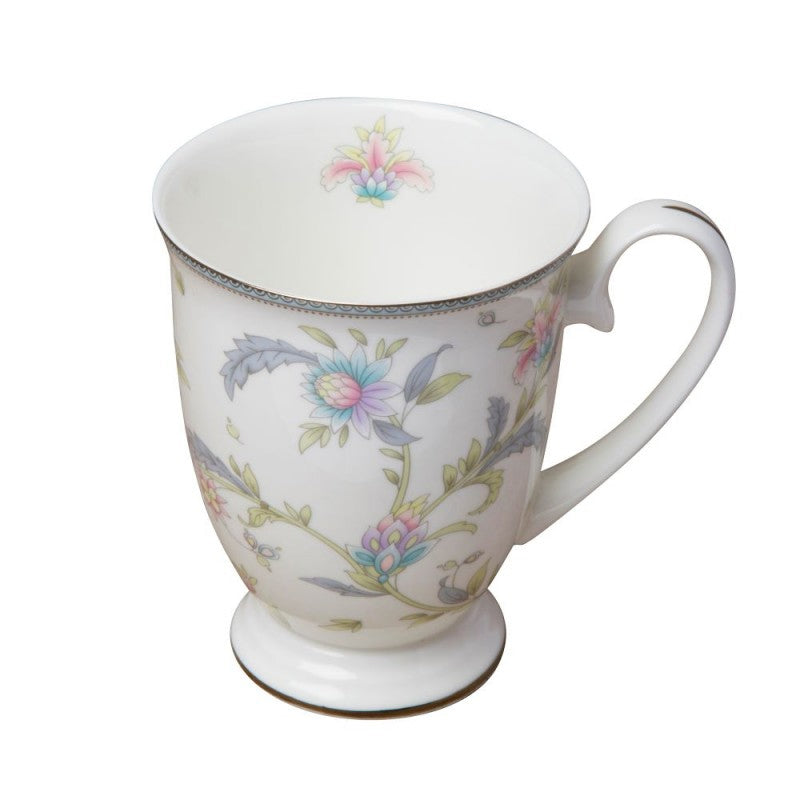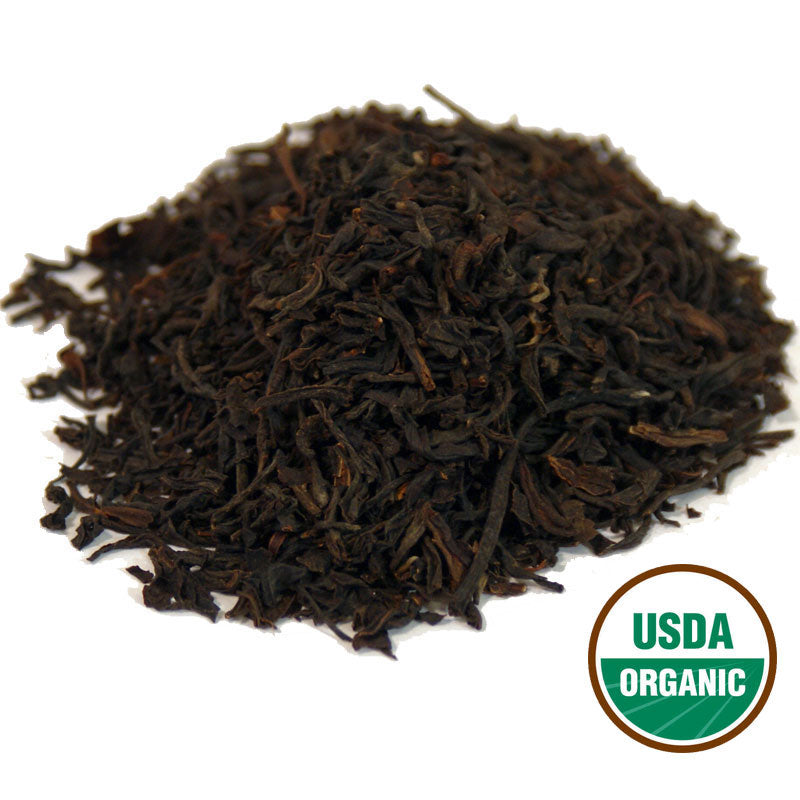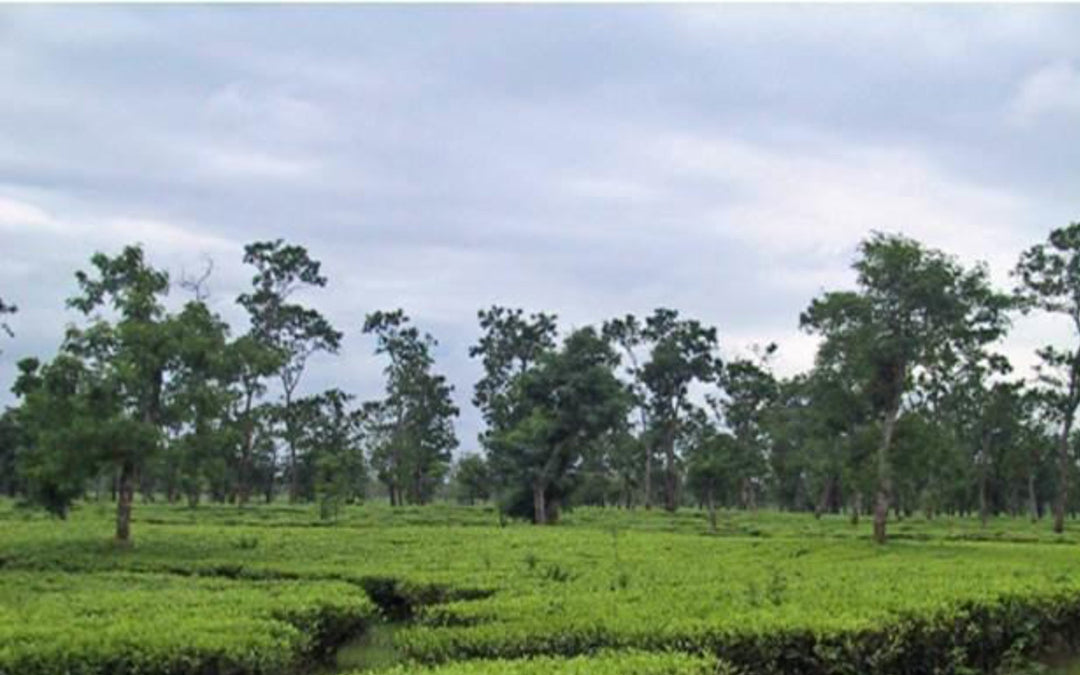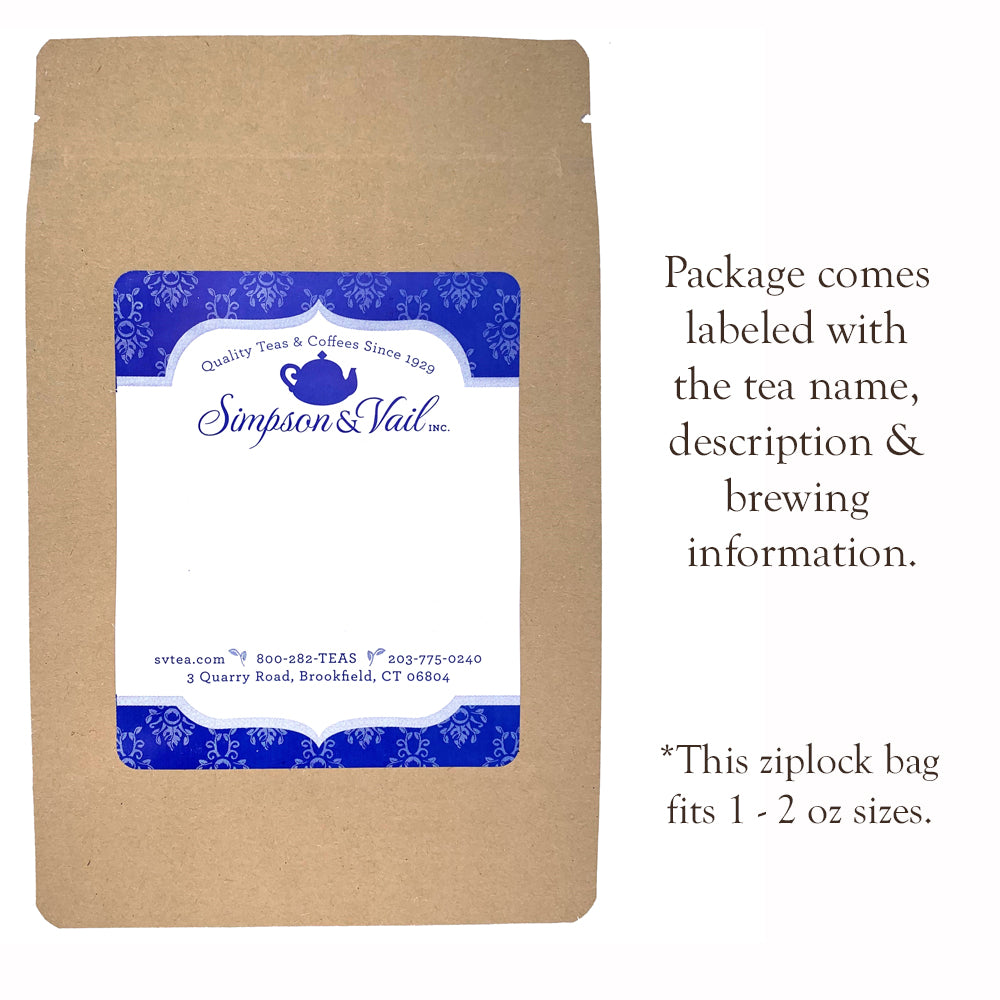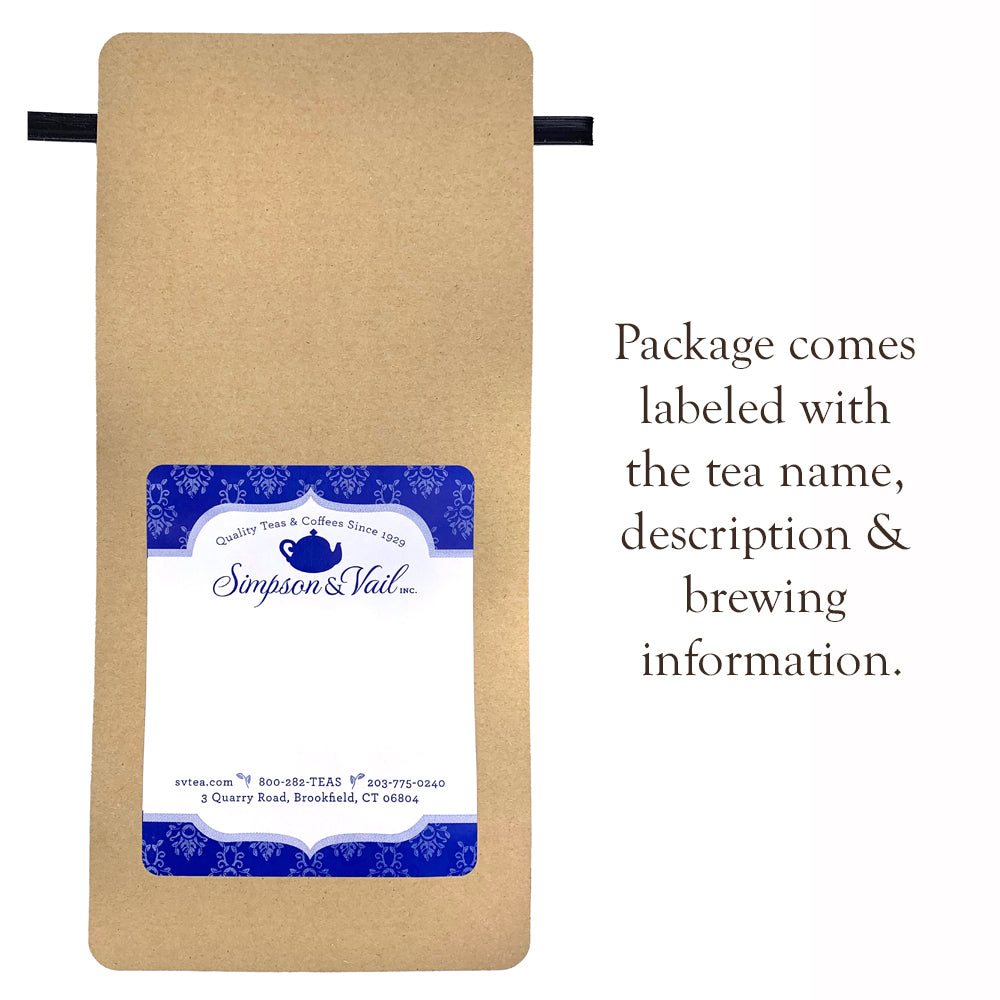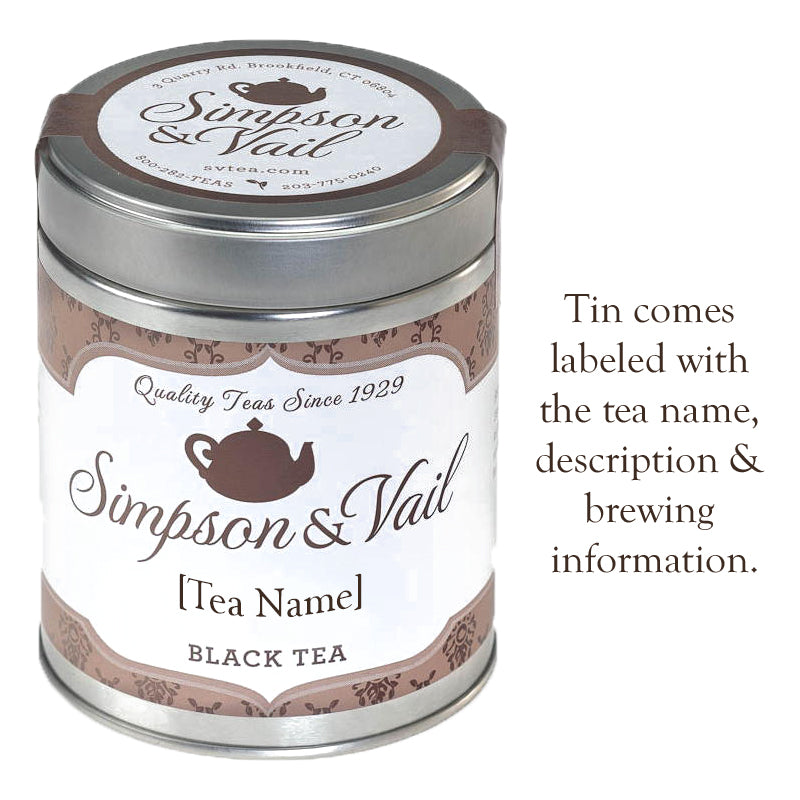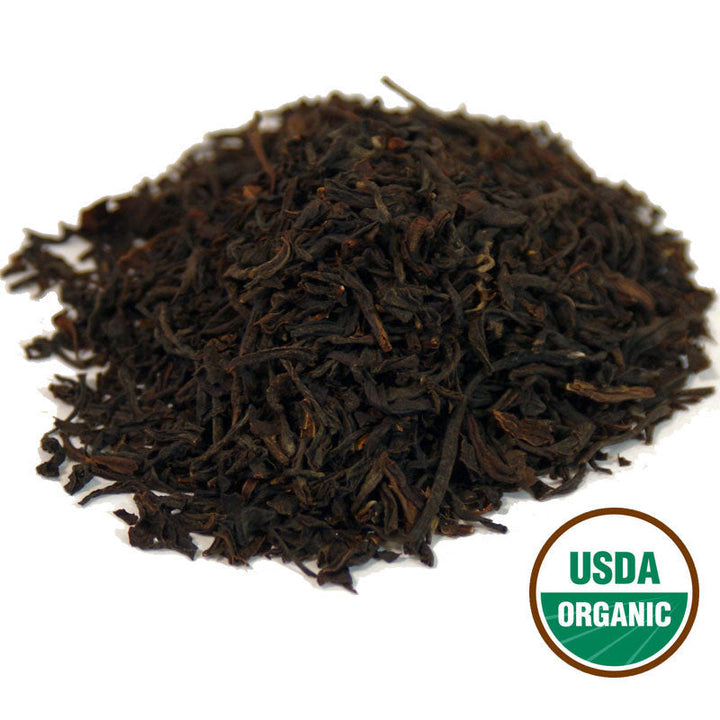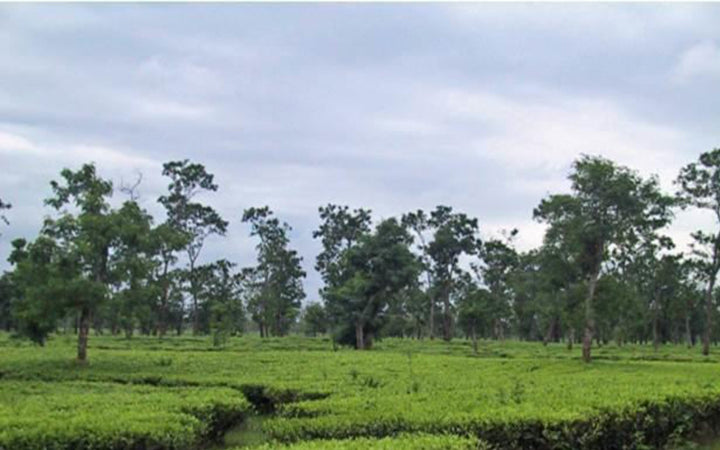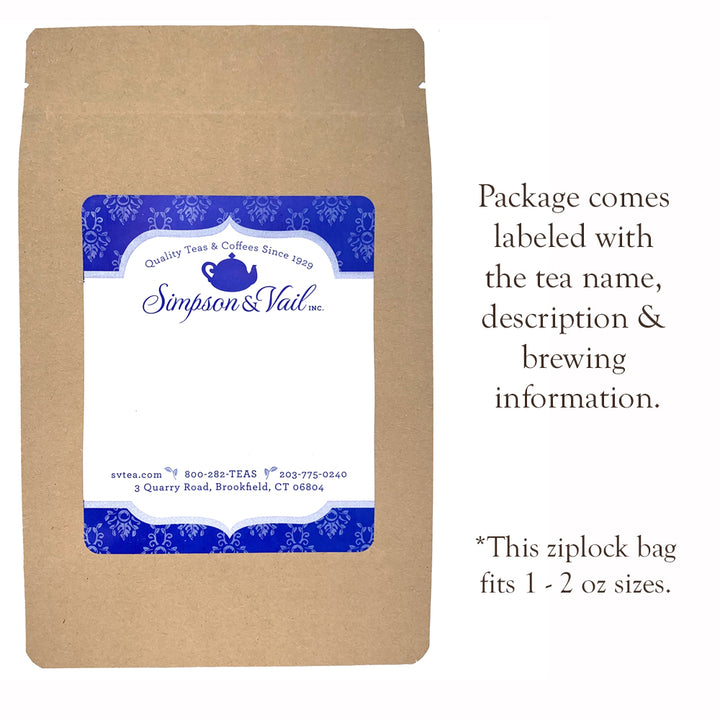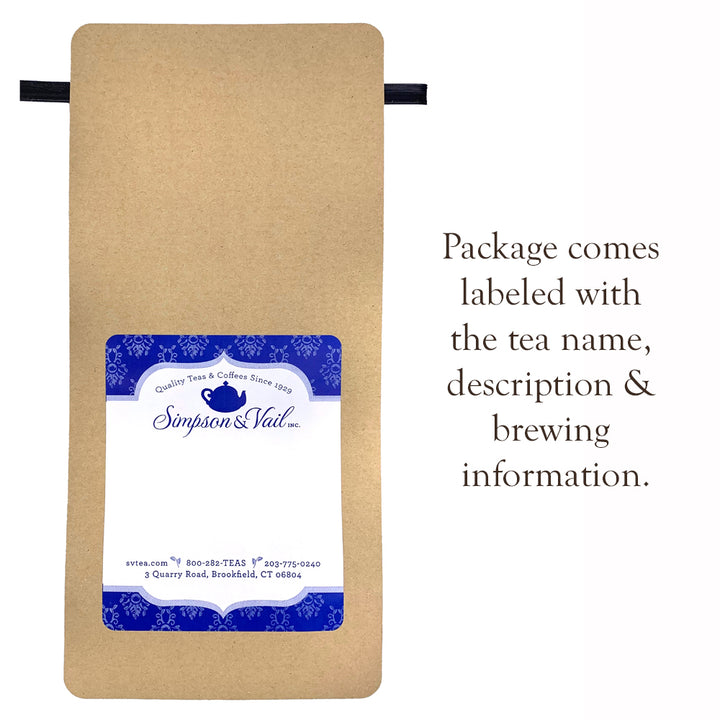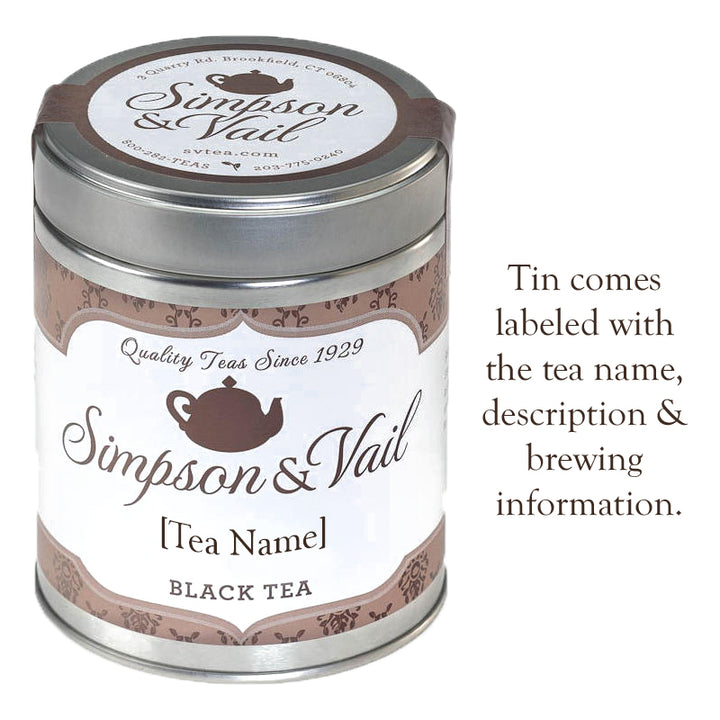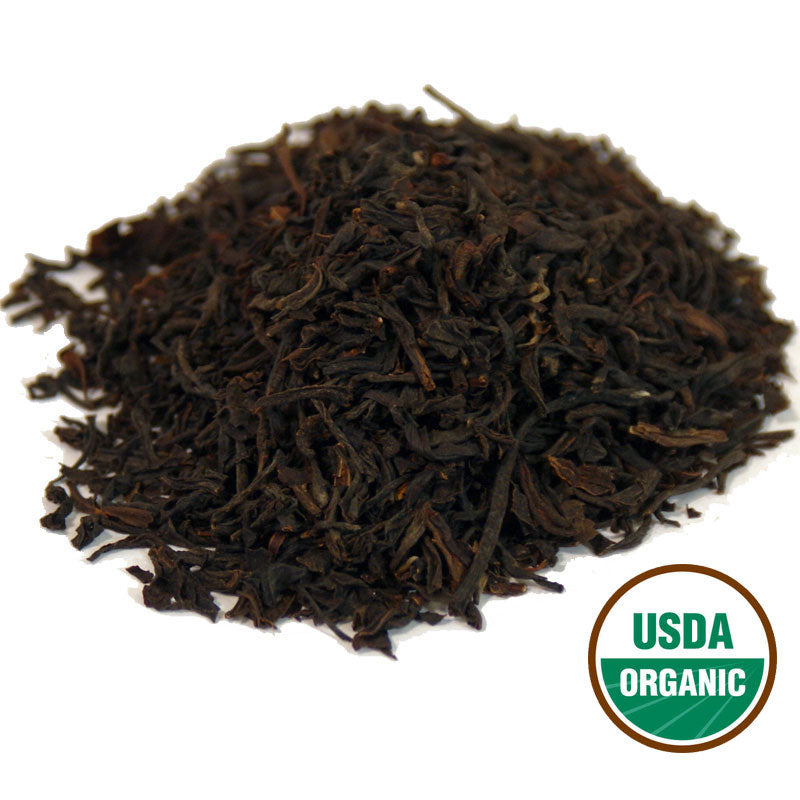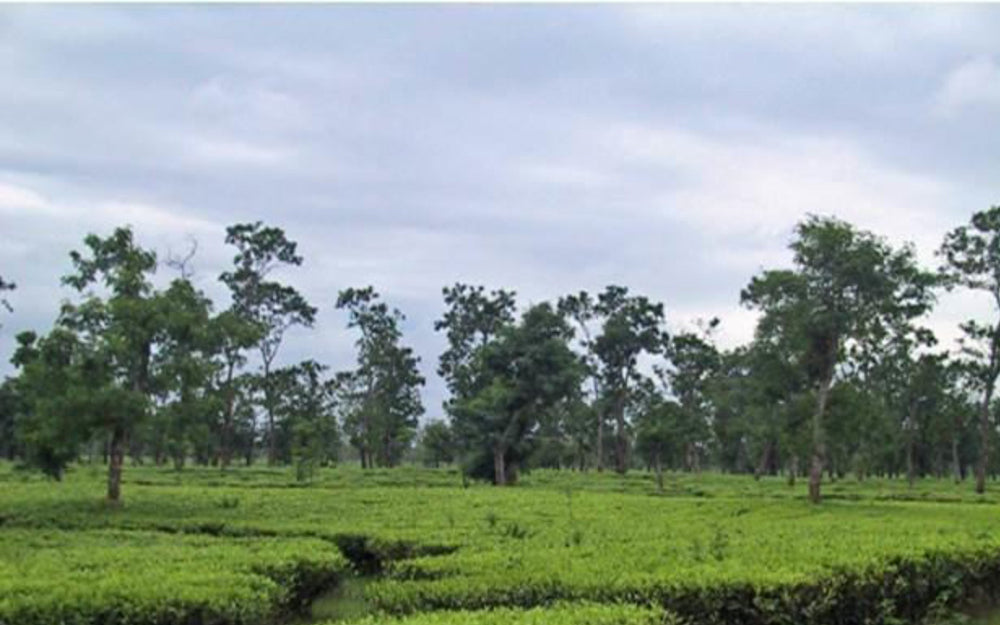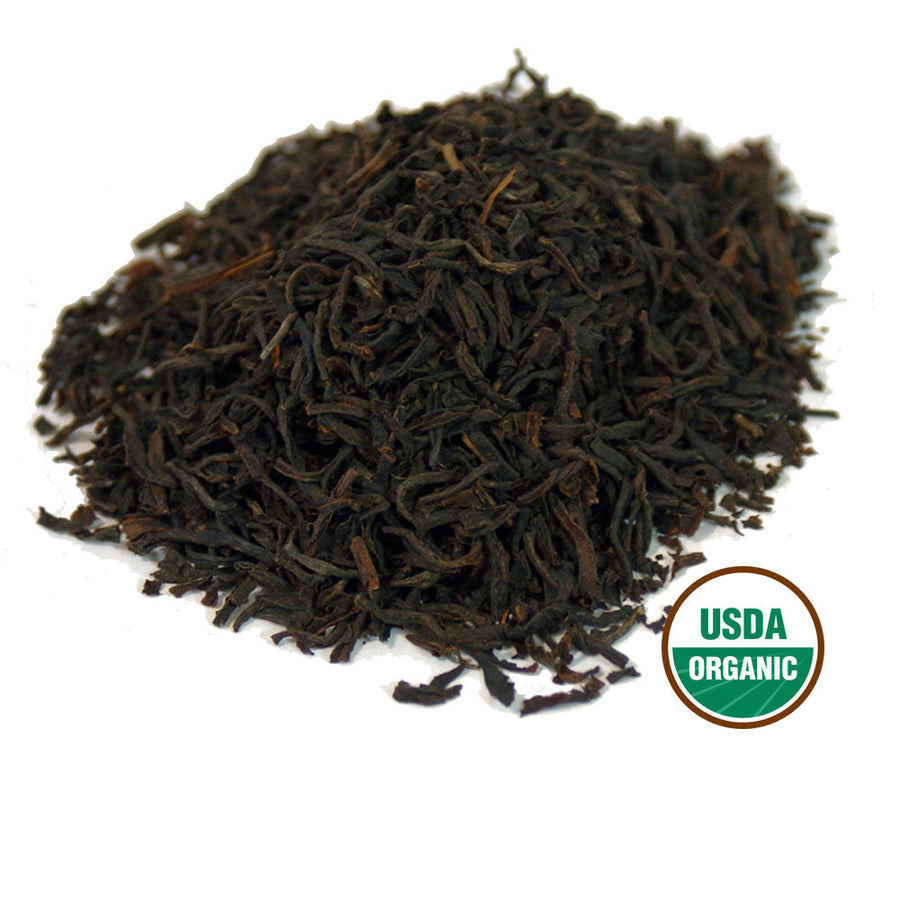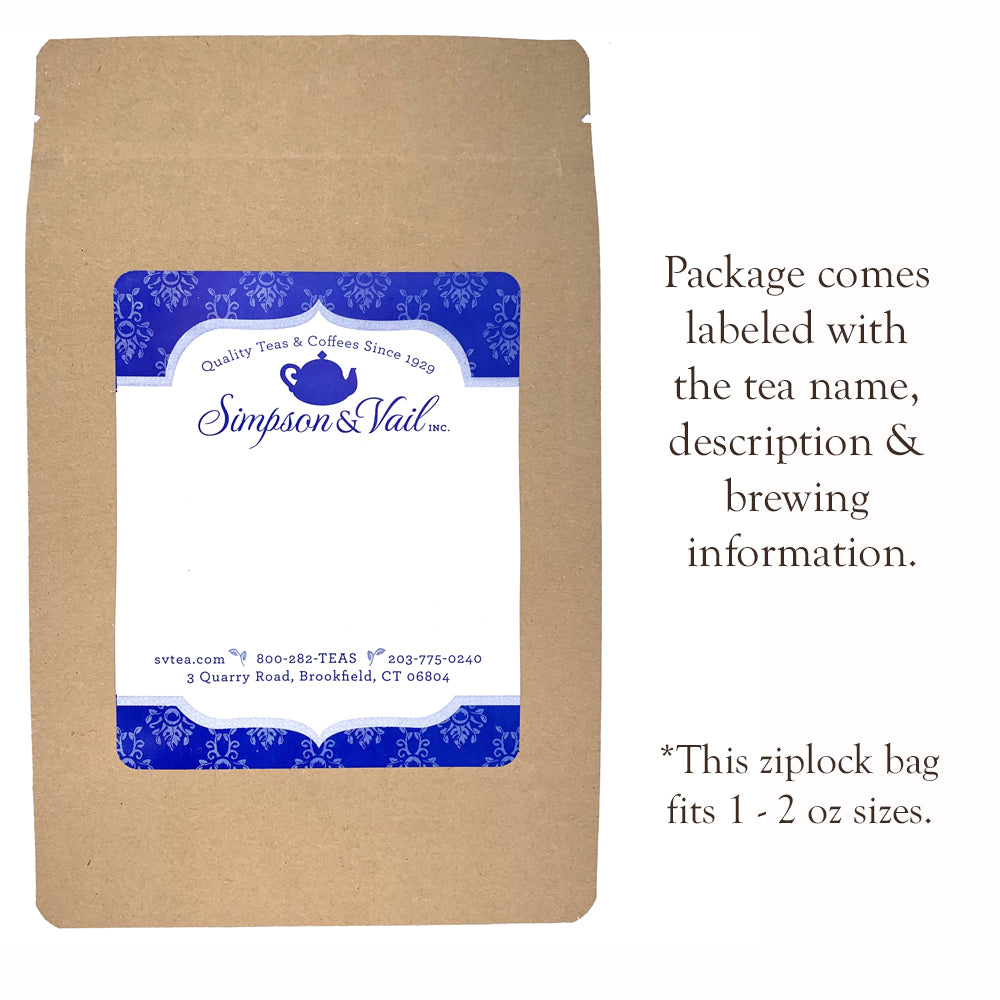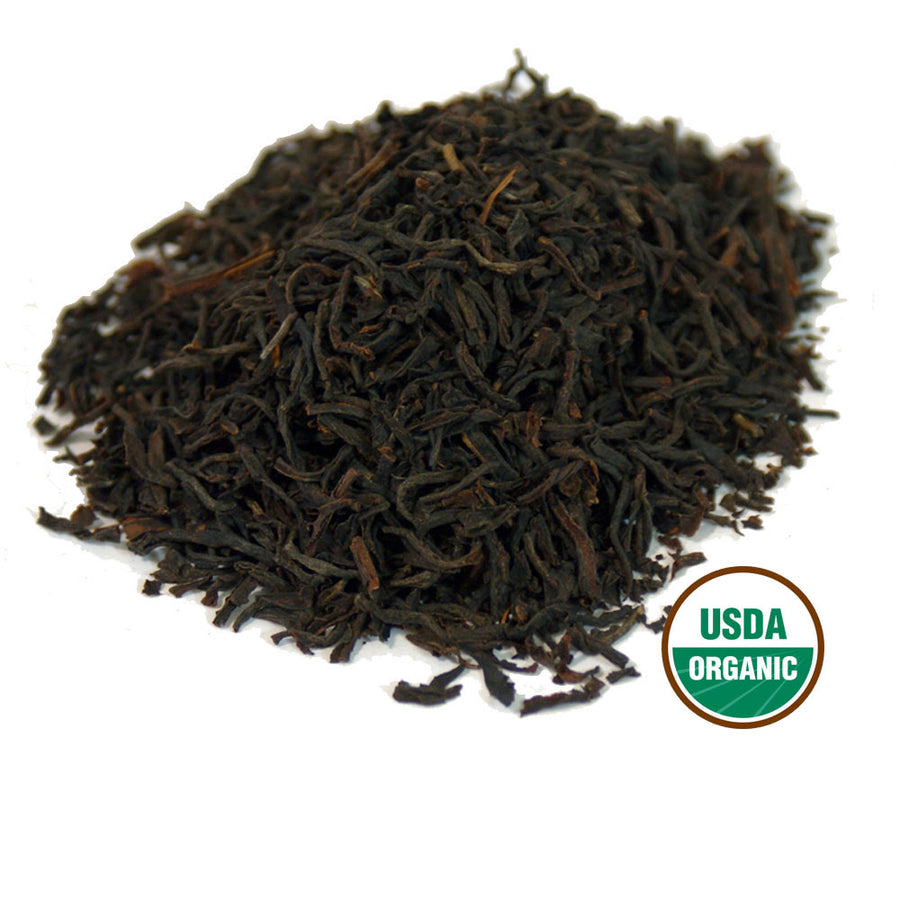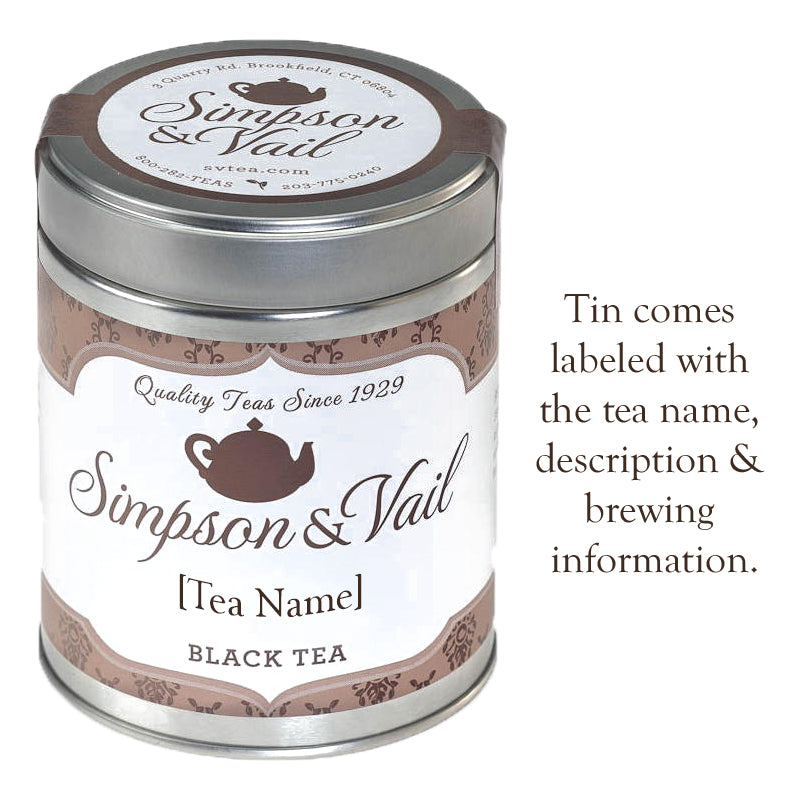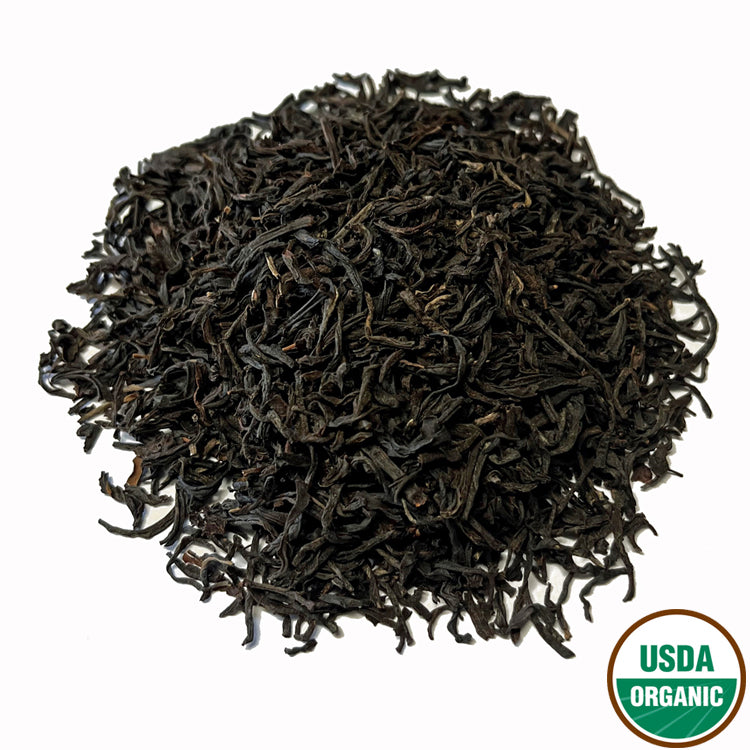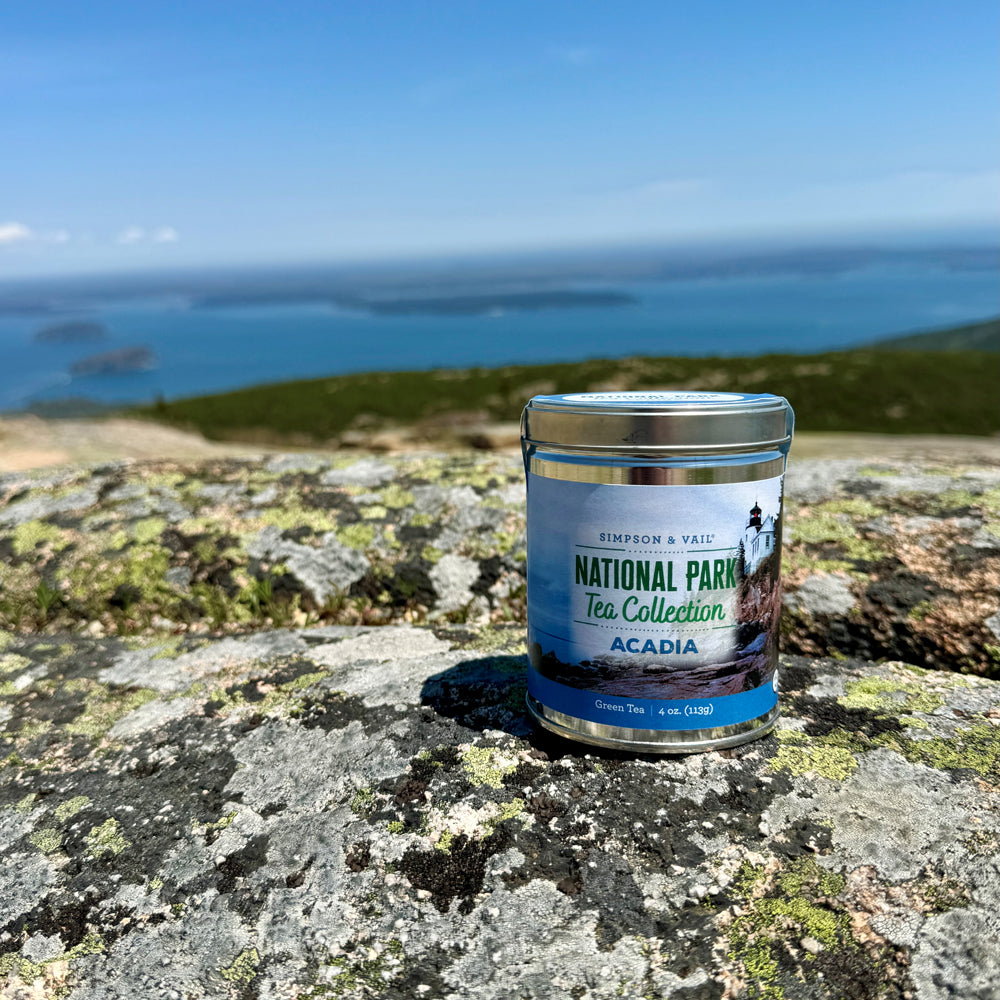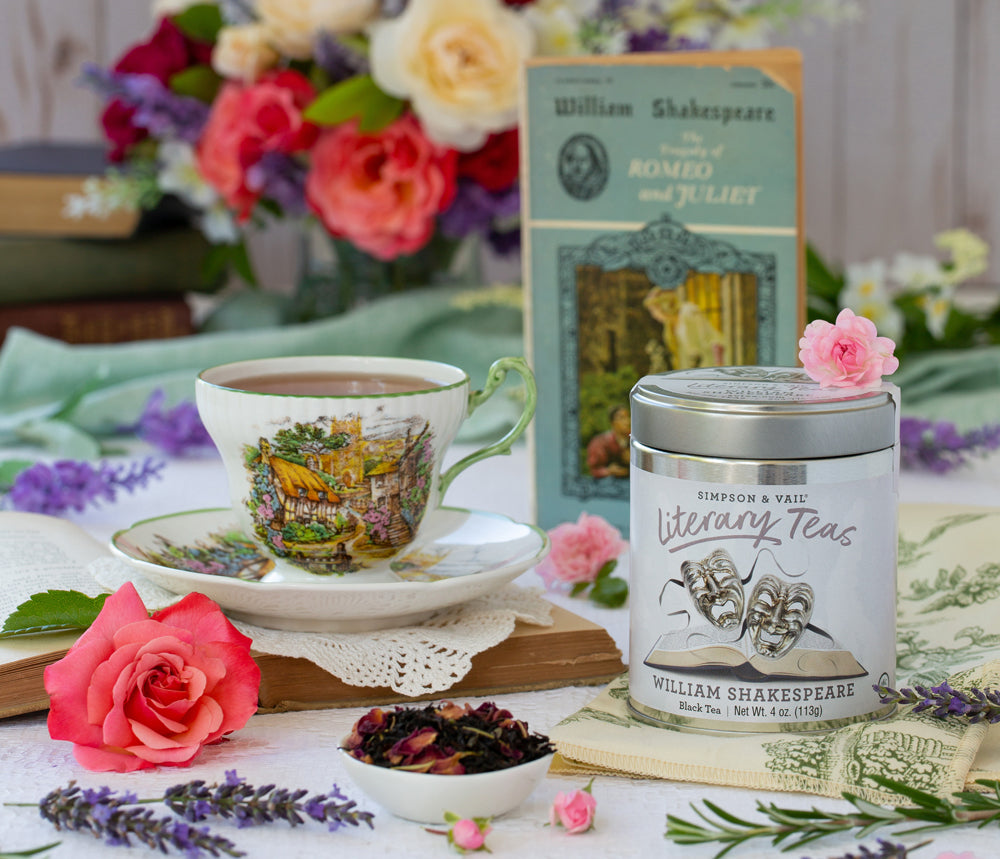Assam - Kopili Estate FTGFOP1, Organic Black Tea
Assam - Kopili Estate FTGFOP1, Organic Black Tea
In the northeastern state of Assam in India, along the Brahmaputra River grow the hearty, malty Assam teas. The heavy rainfall and hot, humid day time temperatures in this area create the perfect green house like environment for growth, as well as helping to create the unique taste found only in Assam teas. Their distinct flavor can be enjoyed "as is"; however, Assam teas are often used in conjunction with other teas to create numerous blends, specifically breakfast teas.
The Kopili Tea Estate takes its name from the sacred River which meanders through the Hills of Assam and empties into the Mighty Brahmaputra in the plains. Legend says that many years ago the Great King of the Dimasa tribe visited all the sacred places in the Himalayas seeking blessings of the deities in those remote religious spots for an heir to the throne. He was told, "In your Kingdom, O Noble King, the Kopili River flows over great rocks amidst serene dark green forests, where the air is pure and you can hear the pleasing sounds of white pigeons calling each other. Go and wash yourself in the cool sacred waters there and your desire will be fulfilled." The King did as he was told and lo and behold the Queen gave birth to a son and the whole Kingdom rejoiced.
Located in the Mikir Hills, an extension of the Great Himalayan Range, in Umrangshu in the North Cachar Hills district of Assam, at an elevation of 1800 ft is the Kopili Tea Estate. It is the only garden in Assam that is located at this high altitude, other Assam gardens are at a maximum of 150-200 ft. Being situated in a sparsely populated area, where soils are rich in mineral content and covered with the lush evergreen rain forests, the Kopili gardens have benefited from the special climatic conditions and the virgin soil. The estate is 2000 acres in size, with over 500 acres in tea cultivation.
The organic blackish tea leaves, with golden tips, brew to a bright copper liquor with a sweet musty smell and a bold malty taste.
Brew tea at 212º - steep for 3 minutes.
Assam teas complement foods such as chocolate, spiced desserts, meat, strong cheeses, fish and more.
Ingredients:
2/3 cup boiling water
2 tsp Assam black tea
« tsp ground cumin
1 tsp ground coriander
1 large garlic clove, minced
1 tsp fresh gingerroot, minced
Freshly ground black pepper, to taste
2 Tbsp olive oil
2 tsp honey
2 fish fillets (cod, snapper, haddock, etc?)
Preparation:
Preheat oven to 325 ø
Place the tea leaves in the boiling water, cover, and steep 5 minutes. After 5 minutes, pour the tea water into a bowl, straining out the tea leaves. Add remaining ingredients (except fish) and mix well. Keep at room temperature.
Drizzle 2 Tbsp of the sauce in a glass baking dish. Place the fish on the sauce in the baking dish and cover with sauce. (Reserve 2-3 Tbsp of the sauce to drizzle over the cooked fish). Bake for 20 minutes.
![]()
-
-
- In stock, ready to ship
- Backordered, shipping soon
This tea is wonderful for getting my morning going with energy and excellent taste. I drink it without milk or lemon.
This tea has a plesant flavor that I would call "reserved" or "quiet" as opposed to bold. I found it slightly astringent. For me the flavor is a tossup between this and the Assam Black, but I'll choose the Kopali for being organic.
I enjoyed this tea, though I'm not a great fan of China Tea. It impressed me as a good quality everyday tea, especially for its modest price.
It's always fun to open a new bag and try a new tea. This one ranks in the top of the class for Assams, especially given it's very reasonable price for an organic tea. It doesn't have the depth of the more expensive Assams, like the Marangi, but definitely delivers nice colour and maltiness. I thought it does better with milk. At any rate, well worth a try if you like Assam.



